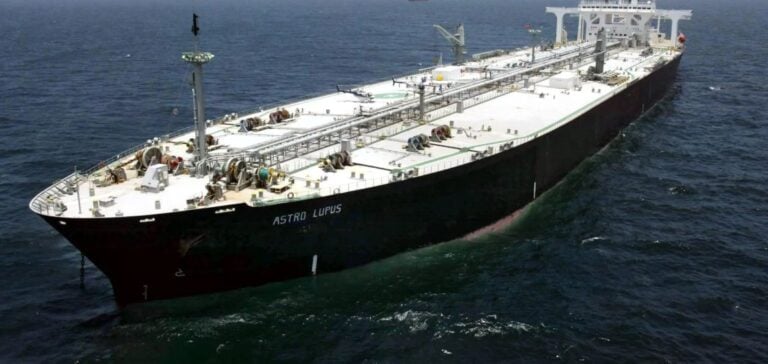German maritime authorities are conducting a complex rescue operation to secure the *Eventin* tanker, stranded in the Baltic Sea. This vessel, flying the Panamanian flag and carrying 99,000 tons of oil, is accused of being part of the “ghost fleet” used by Russia to circumvent international sanctions.
The German maritime emergency command center deployed several assistance vessels to tow the distressed tanker to a safe haven. Initially headed towards the northern part of Rügen Island, the convoy altered its course to approach the Sassnitz harbor due to adverse weather conditions. High winds reaching force 9 on the Beaufort scale and waves up to four meters have significantly delayed the operation, which is expected to last until at least Sunday.
An Environmental and Technical Risk
The *Eventin*, several decades old, is listed among the 192 most dangerous tankers by Greenpeace. According to Thilo Maack, a marine biologist from the organization, these outdated vessels pose a daily threat to the Baltic Sea coasts. The *Eventin* was destined for Port Said, Egypt, but its engine failure, caused by an electrical blackout, left it drifting in a sensitive maritime area.
To mitigate the risk of an oil spill, a German police helicopter airlifted experts onto the vessel. In addition to assisting with towing operations, they provided essential equipment such as flashlights and radios to the 24 crew members, who remain without power.
The Russian Ghost Fleet Under Scrutiny
This incident has reignited concerns about Russia’s “ghost fleet.” Since the onset of the invasion of Ukraine, Moscow has increased the use of vessels with opaque ownership or inadequate insurance, enabling the continued export of oil despite Western sanctions. The European Union has already sanctioned nearly 80 ships, while the United States and the United Kingdom recently extended their measures to 200 tankers and gas carriers.
German Foreign Minister Annalena Baerbock has sharply criticized this strategy. She stated that “the use of dilapidated tankers endangers Europe’s environmental and economic security.” The situation in the Baltic Sea also recalls recent shipwrecks in the Black Sea, where similar incidents caused significant hydrocarbon pollution.
A Wake-Up Call for Europe
The *Eventin* exemplifies the growing challenges posed by Russia’s clandestine fleet of aging vessels. While adverse weather conditions test Germany’s rescue capabilities, this incident may accelerate European discussions on strengthening controls and regulating risky maritime activities.
The tanker is expected to reach Sassnitz by Sunday at the earliest, where thorough technical inspections will determine the extent of the damage and the environmental threat it poses.






















